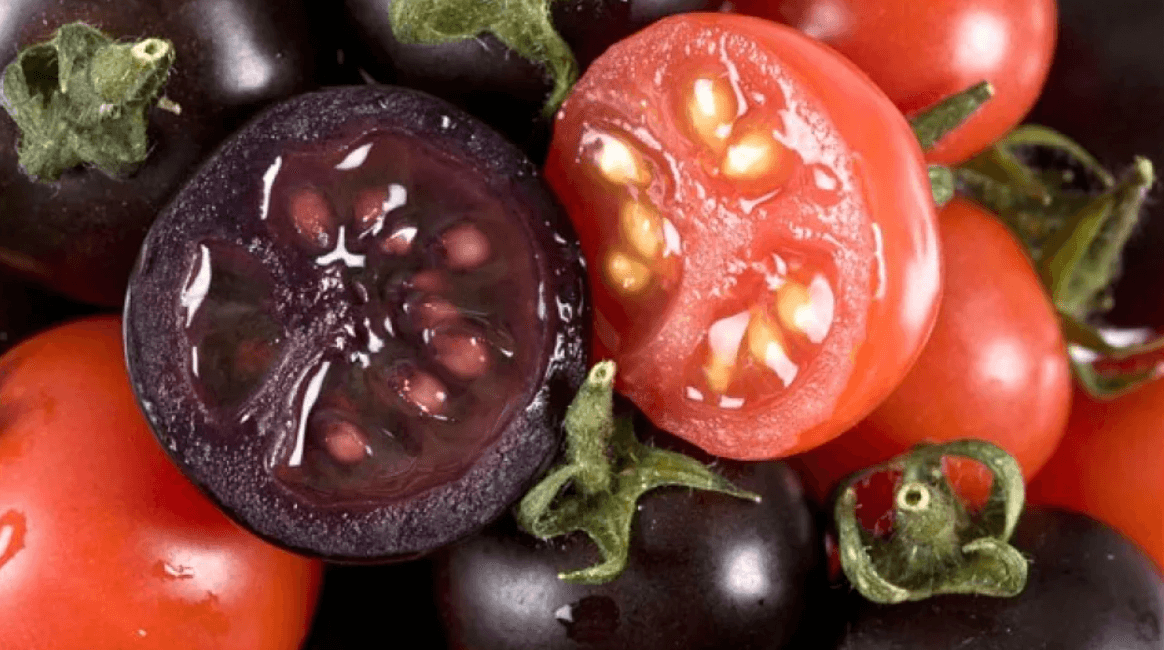
A purple tomato that has been genetically altered to have the beneficial pigments found in "superfoods" such as blueberries could soon be available in the United States market. Norfolk Plant Sciences, a small company, applied for approval last year and believes it will be granted.
During an online presentation on February 22, Eric Ward, an adviser to Norfolk Plant Sciences, stated, "We are optimistic that we will acquire the clearances that we need." Gardeners will be able to buy seeds from the company, and retailers will be able to buy fresh tomatoes and other tomato products.
Cathie Martin of the John Innes Centre in the United Kingdom developed the purple tomato. Her team revealed in 2008 that mice on a purple tomato powder supplemented diet lived approximately 30% longer than mice on a routine diet or a diet supplemented with powder from normal tomatoes.
"A 30% longer lifetime is fantastic," she remarked during the presentation, although adding the findings of animal research don't always translate to humans.
There are already purple-skinned tomato types, but the genetically engineered purple tomatoes also have purple meat. They have ten times the amount of antioxidant pigments called anthocyanins.
Martin achieved this by combining two genes from snapdragon plants (Antirrhinum) and one from thale cress (Arabidopsis). The new genes are only active in the fruits, where they change the activity of the plant's existing anthocyanin-producing machinery.
Tomatoes with a higher content of anthocyanins have a longer shelf life. As a result, the purple tomatoes should be less harmful to the environment than similar cultivars. "We can have a significant impact if we can reduce the quantity of food waste," Pumplin added.
The new tomatoes are being crossed with other kinds to produce purple cherry tomatoes and purple beefsteak tomatoes. According to Pumplin, the flavor is determined by the pre-existing variation.
The tomatoes have never been sold since being approved for genetically modified crops is highly expensive. However, in 2019, the US began overhauling its biotechnology regulatory framework to make it simpler for low-risk goods to gain approval.
Martin explained, "This is the first time we've filed for approval to sell the purple tomatoes."
"Things appear to be moving more quickly now." The US Department of Agriculture is required to react within 180 days under the new standards. Even though the time has passed, the company is still waiting for a formal response, but Ward says his dealings with the agency have been "100% good."
One genetically modified tomato, the Flavr Savr, was approved in the United States and put on the market in 1994. However, the firm behind it never made a profit, and sales eventually stopped.










